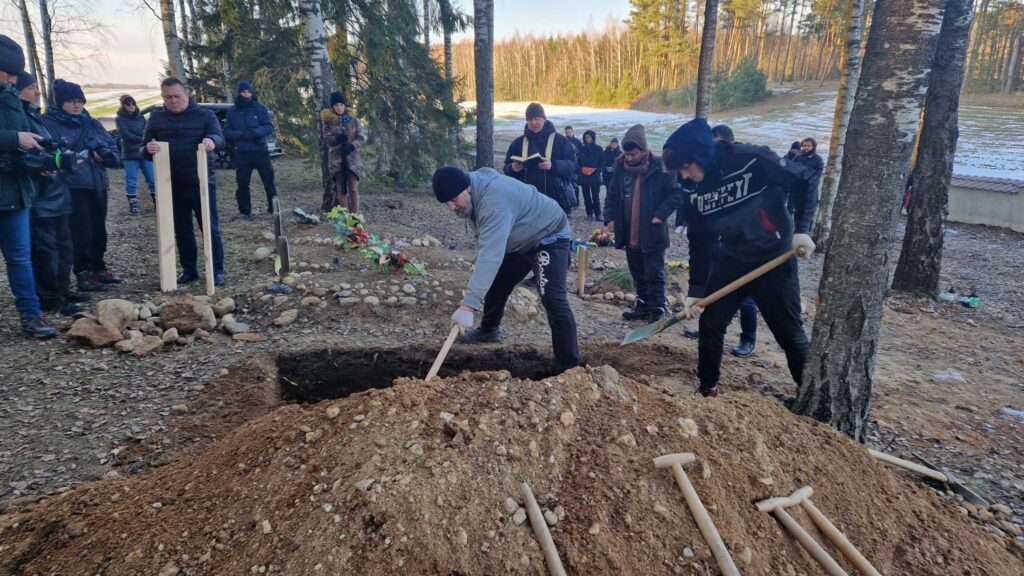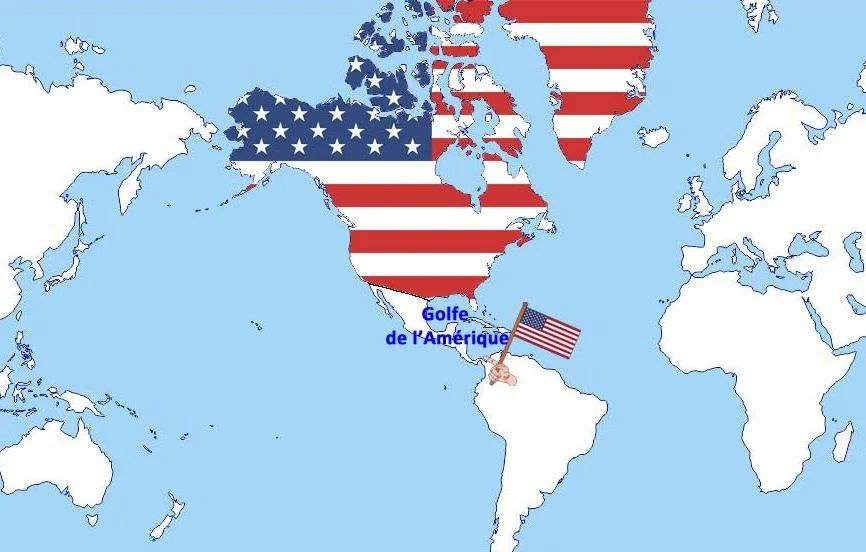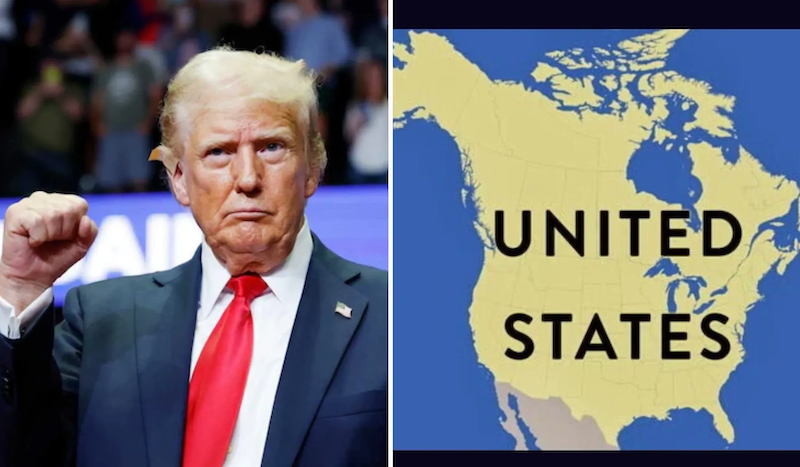Reflectii
L’intolérance des « progressistes » ne connaît plus de limites
Eux, ils peuvent tout se permettre…
Ça ne passe toujours pas. L’élection de Donald Trump continue de filer des boutons aux plus allergiques de nos représentants politico-médiatiques de gauche, lesquels n’ont visiblement pas compris deux choses essentielles. La première : Donald Trump a été élu par le peuple a-mé-ri-cain, lequel a plébiscité un projet clairement défini comprenant des actes forts dans des domaines comme l’industrie, la recherche scientifique, l’immigration, le wokisme, l’écologie, etc. À l’inverse de nos politiciens bavards qui, une fois arrivés au pouvoir après avoir promis le meilleur, ne font rien ou font pire que leurs prédécesseurs en faisant l’inverse de ce qu’ils avaient promis, le président américain, quoi que l’on pense de lui, a décidé de respecter ses engagements et de passer immédiatement à l’acte. La seconde : les Américains se soucient comme d’une guigne des rodomontades, des insultes, des invectives et des injonctions des journalistes et des artistes français dont ils ignorent jusqu’à l’existence.
Le règne de l’empereur Trump a commencé par l’introduction d’un cheval au Pentagone

Pour l’élite américaine, le président Trump 2017 est un malentendu qui est arrivé à la Maison Blanche à cause d’un bug dans le système. Le président Trump 2025 est plus proche d’un empereur. Après avoir conquis tous les États «indécis», il est craint, on lui chante des hosanna, on attend de lui qu’il accomplisse des choses, et il les promet avec une ampleur royale, y compris le doublement de l’État aux dépens du Groenland et du Canada.
Movement for Oneness and Jihad in West Africa

Established In: October 2011
Established By: Hamada Ould Mohamed Kheirou
Also Known As: MOJWA, Movement for Unity and Jihad in West Africa
Country Of Origin: Algeria, Mali
Leaders: Hamada Ould Mohamed Kheirou (Alias Abu Qumqum)
Key Members: Hamada Ould Mohamed Kheirou, Ahmed Al-Talmasi, Sultan Ould Badi
Operational Area: Algeria, Mali, Niger
Number Of Members: Unknown
Involved In: Armed Attacks, Bomb Attacks, Terrorist Attacks, Kidnapping
Poland-Belarus Border: How Many Migrant Bodies Lie Undiscovered in the Forests?

The Polish authorities have absented themselves from responsibility for migrants dying on the border with Belarus, leaving NGOs and activists to find and identify bodies lying in the forest areas.
Volunteer rescuers are the only ones looking for migrants missing on Poland’s border with Belarus. Since the migration crisis on the border exploded into life in 2021, it has happened that a random walker comes across the corpse of a migrant and the Polish authorities are contacted; otherwise, they have left it to us to deal with this terrible situation.
Théorie des étapes, macrohistoire et survie au Kali Yuga

Remplacer les inégalités mondiales et les injustices systémiques par la réciprocité et la mutualité est une condition préalable pour échapper à l’ère du conflit.
Notre époque présente toutes les caractéristiques du Kali Yuga, une ère sombre de matérialisme, d’aliénation, d’injustice et de déclin moral. Mais il y a de l’espoir.
L’impérialisme US, nouvelle version

Le président Trump n’est pas encore entré officiellement en fonction qu’il multiplie déjà les lieux de conflits avec les puissances étrangères. En effet, on a appris ces derniers jours que Trump voudrait à la fois annexer le Canada, le Groenland et le Panama. C’est une espèce d’Anschluss en version 2025, avec un blond à brushing plutôt qu’un brun à moustache. Pour jouer toujours dans la provocation, il décide de rebaptiser également le golfe du Mexique en golfe d’Amérique. La présidente mexicaine n’a pas tardé à réagir en rappelant que ce nom était internationalement reconnu. Ce à quoi nous pourrions rajouter que le Texas, et une bonne partie des actuels USA, faisaient partie à l’origine du Mexique d’où le nom du golfe au passage. On remarquera d’ailleurs que le Mexique a visiblement mieux réagi que les autorités danoises ou canadiennes qui se retrouvent un peu prises au piège de leur propre soumission aux USA à travers l’OTAN bien sûr, mais aussi à travers leur politique économique.
Groenland : Scène géopolitique d’un bras de fer entre les États-Unis et l’Union européenne

Depuis sa victoire électorale, Donald Trump a à plusieurs reprises évoqué l’idée que le Groenland devrait devenir une partie intégrante des États-Unis.
Autrefois une île isolée et silencieuse, le Groenland devient de plus en plus le centre d’un jeu d’échecs géopolitique qui attire l’attention des États-Unis et de l’Union européenne. Sa position stratégique et ses ressources naturelles abondantes en font une cible convoitée, et cette lutte d’influence ne restera probablement pas sans conséquences pour l’Europe.
La nouvelle fureur impériale de Trump ou le nouveau Lebensraum américain ?

La fureur renouvelée de Trump pour s’emparer du Canada, du Groenland et du contrôle du canal de Panama représente l’essence même de l’impérialisme américain. Comme avant la Première Guerre mondiale et sous le régime nazi, les États-Unis semblent être entrés dans une phase tardive de leur hubris impériale.
The New Rasputins

Frosty pine trees rim the edge of an icy lake. Snow is falling; spa music plays in the background. A gray-haired man with a pleasant face stands beside the lake. He begins to undress. He is going swimming, he explains, to demonstrate his faith, and his opposition to science, to technology, to modernity. “I don’t need Facebook; I don’t need the internet; I don’t need anybody. I just need my heart,” he says. As he swims across the lake, seemingly unbothered by the cold, he continues: “I trust my immune system because I have complete trust and faith in its creator, in God. My immunity is part of the sovereignty of my being.”
